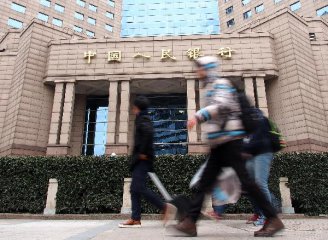According to the bank, it sold 200 million dollars in cash on Wednesday morning and planned to sell a total of 3.845 billion dollars for the seven trading days over Aug. 21-29.
In addition, the bank sought to invest in 4,000 inverse currency exchange-traded funds (ETF), which serve as a kind of dollar futures purchase.
To strengthen the real against the dollar, the bank said it planned to sell up to 550 million dollars in cash a day, while purchasing the same amount through inverse currency ETF operations.
Should the demand for dollars drop below the proposed figure, the bank will resort to traditional currency swaps to reach its target.
The sell-off is not public, but limited to large-scale banks and financial operators authorized by the central bank to supply for major companies and financial institutions.
Brazil's foreign reserves, one of the country's main tools to bolster the economy against external blows, is currently at about 388 billion dollars.
The move was designed to meet rising demand due to global market volatility, the central bank said on Aug. 14.




















Latest comments